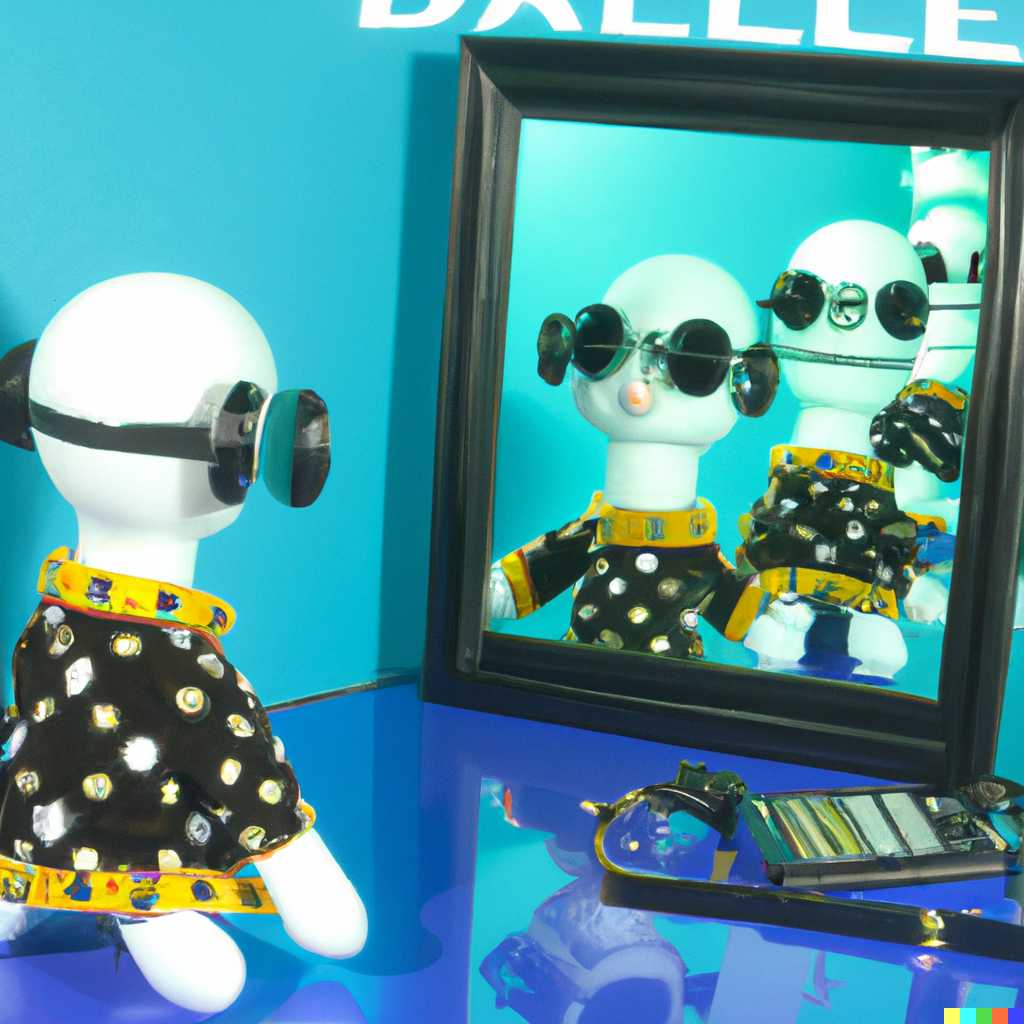
Generative Media
You may have noticed a lot of sharing of Open AI’s Generative Pre-trained Transformer 3 (GPT-3) and ChatGPT screenshots. The most popular tend to be funny.
I asked ChatGPT to describe in a style that Stephen King would write, a scene describing somebody struggling to decide which brand of toilet paper to buy. The result is fun.
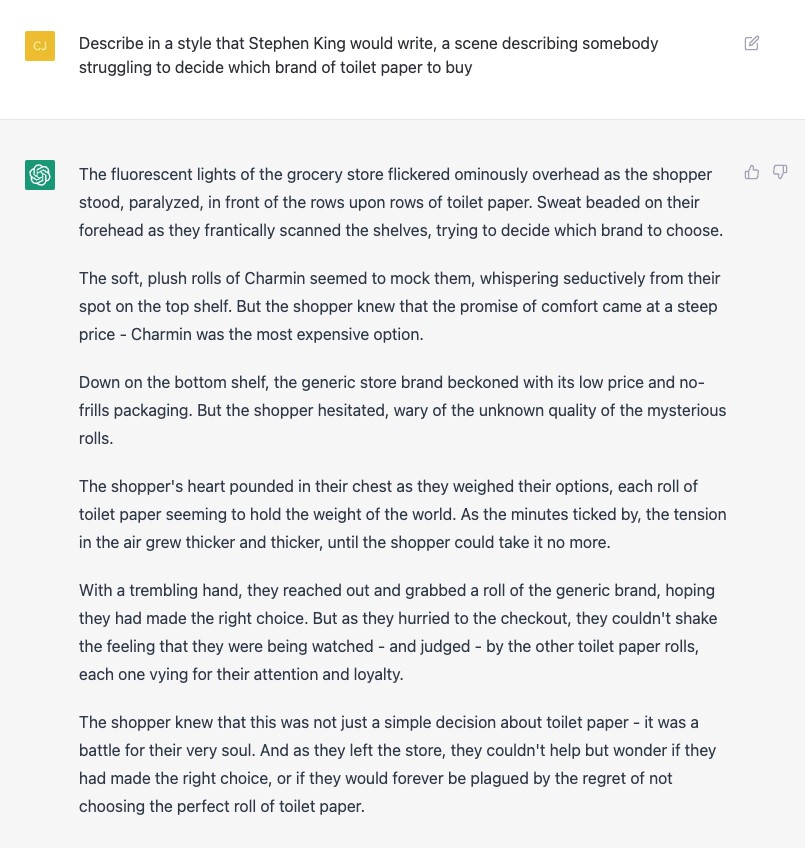
Here’s one about writing a script in Seinfeld style:
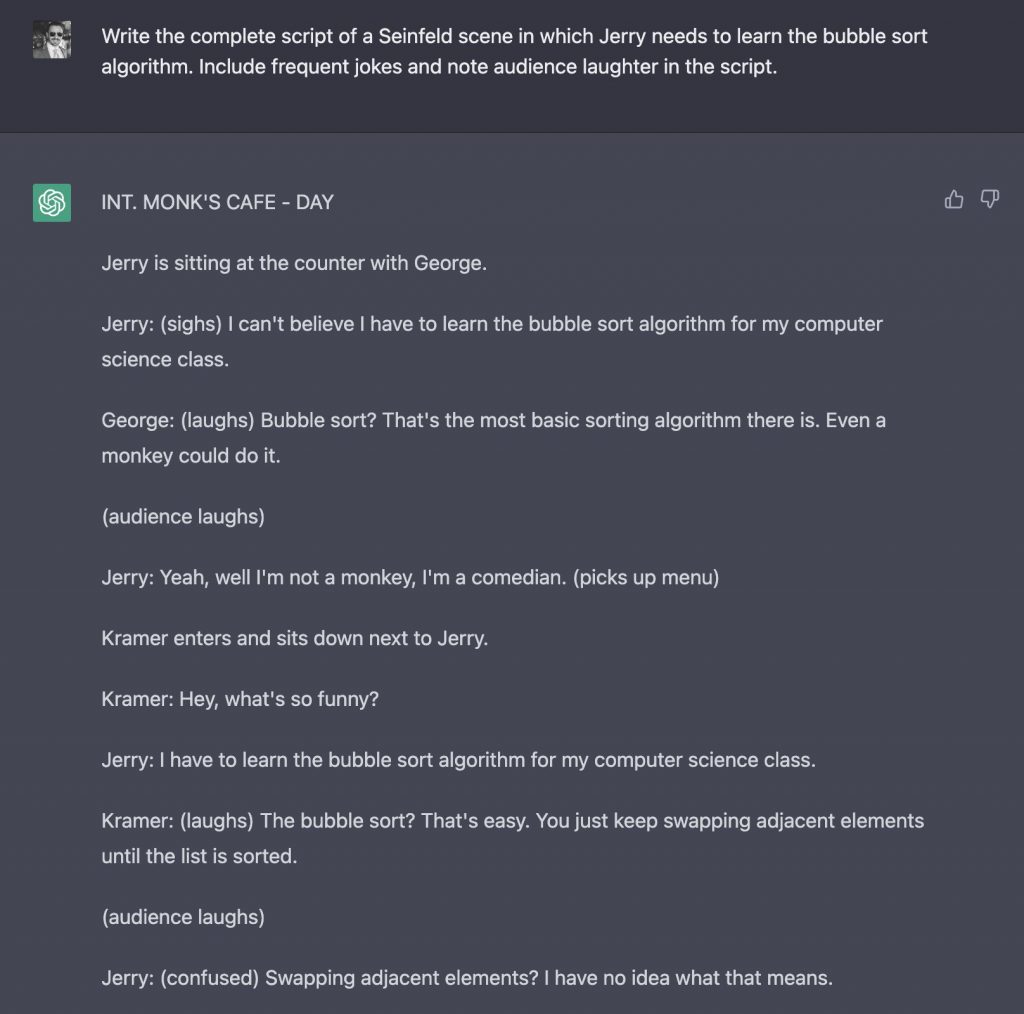

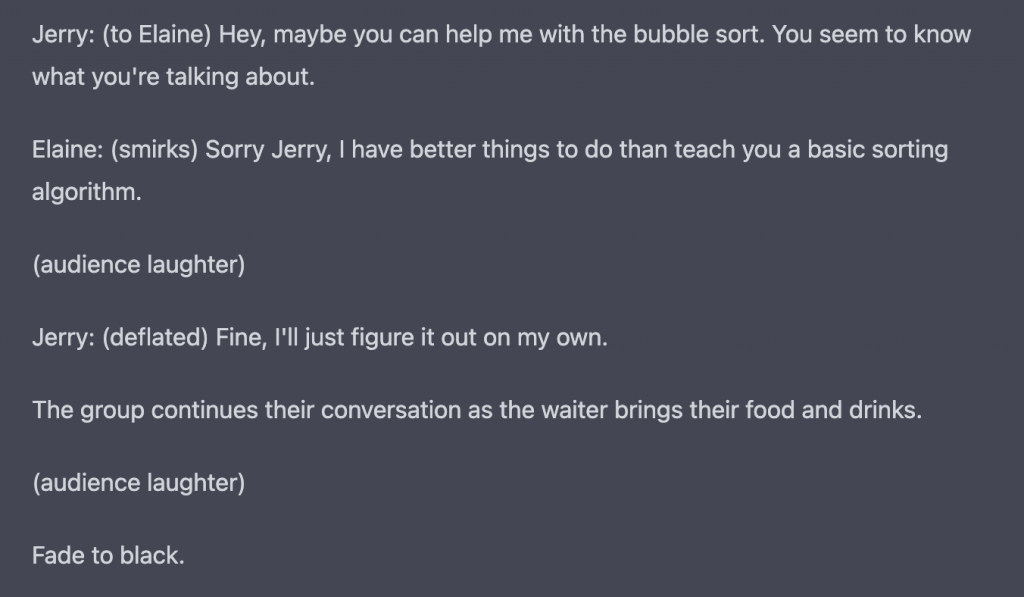
In the sense that you can recognize the blend of styles. Elements of relevance and divergence are provided by the prompts. The evaluation, on the part of this author, is entirely subjective. And in some ways, carbon dated. Years from now, the bubble sort will be around. Probably. The knowledge of what a typical episode of Seinfeld…maybe not. No offence. Today I am amused. Tomorrow I will be annoyed. There’s something amusing in knowing that it’s generative.
There are reports of Stackoverflow getting flooded with GPT responses. Interest has exploded. Liftoff!
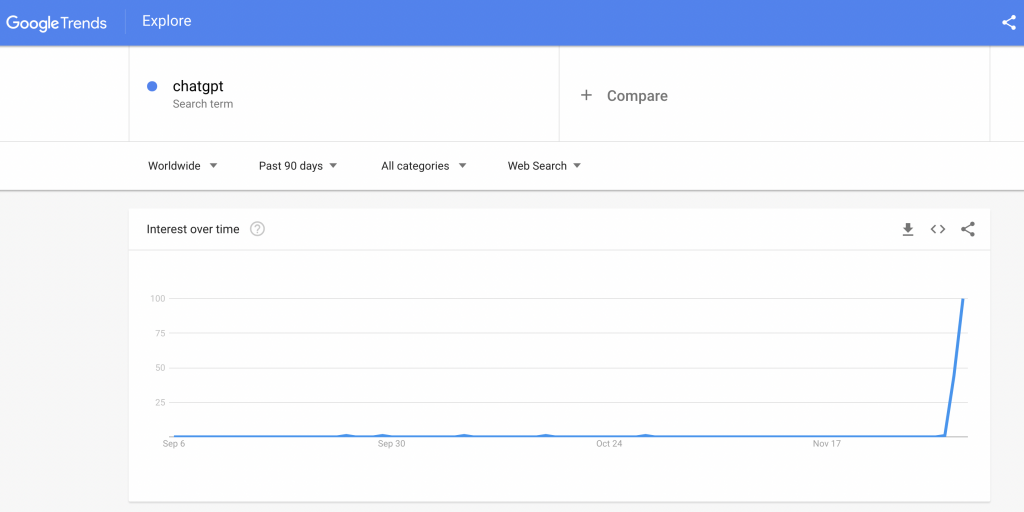
Hype Hype Hype Hype Hype Hype
When I first tried Google, sometime around 2000, it was magic. I entered in a few words, and the information was just there. Google Search in 2000 was a very different product than it is today. There was such a strong relevance signal to it. People back in 2000 wrote content for humans, not to trick Google into ranking commercial spam higher. I remember how Google made me feel. The signal was high. The noise was low. It was like a superpower.
Great products make you feel that way.
The first time I tried GPT felt kind of like that. It felt like magic. ChatGPT feels kind of like Google Search before IPO. You ask it a question, and it generates a pretty median answer. It’s pretty good.
That feeling of magic tends to generate a Hype wake behind it. We haven’t quite reached the peak of inflated expectations yet as nobody is predicting that ChatGPT will replace farming. Not yet. It’s no doubt coming. But, the usual personalities with the usual audiences are predicting the usual things. That it’ll replace developers. That it’ll replace news. It’ll replace teachers. It’ll replace physics professors. It’ll change plagiarism detection. It’ll replace Universities. It’ll replace stackoverflow.
We already experienced a hype bubble last year, when the USPO ruled that AI can’t own patents. That space was thoroughly explored late in the last decade with earlier generations of GPT. There are very nuanced reasons for the rulings, and just how tricky US patent law is. Some institutions are resistant to full GPT replacement. So no. It hasn’t changed literally everything.
The version of GPT in use today won’t be the kind that replace stackoverflow tomorrow. We’re a few iterations out from that.
The technology is useful and it is now accessible. That will accelerate the disruption. That’s the bit I’ll focus on in this space.
Generative Media
The use cases for generative media in the marketing science literature exist and the potential upsides are known [1, 2, 3]. There are further use cases in the emNLP literature with considerable more uncertainty about the upsides. Solid productivity gains [4, 5]. Solid risks. We know about algorithm aversion [6].
Generative media won’t immediately change the size and nature of audiences for many reasons. I won’t repeat the entire post. There is misinformation because there is demand for misinformation. Some people want misinformation. They have their reasons for it. GPT, in the short run, will likely depress the cost of the production of misinformation, but algorithm aversion and social feedback is unlikely to immediately destroy the demand for misinformation.
The combination of different narrow machine intelligence, GPT and otherwise, is likely to combine to create deep fakes that are cheap enough to be plentiful and good enough to fool even those who do not want to believe. Brace yourselves. Moral panic is coming.
Every technology has the good and the bad. A few startups are going to enable some pretty great productivity gains. A few startups are going to enable some pretty terrible social effects.
It’s okay to be excited. It’s okay to be a little weary. Mind the hype. Mind the doom.
It’ll be something in between.
Sources
[1] Hauser, J. R., Urban, G. L., Liberali, G., & Braun, M. (2009). Website morphing. Marketing Science, 28(2), 202-223
[2] Urban, G. L., Liberali, G., MacDonald, E., Bordley, R., & Hauser, J. R. (2014). Morphing banner advertising. Marketing Science, 33(1), 27-46
[3] https://christopherberry.ca/website-morphing/
[4] Yet, in spite of the very real upsides, the hype cycle guarantees that there will be a massive misallocation of capital. It does offer relief to the beleaguered hypemen, exhausted by the metaverse desert.
[5] Agrawal, A., Gans, J., & Goldfarb, A. (2018). Prediction machines: the simple economics of artificial intelligence. Harvard Business Press
[6] Jussupow, E., Benbasat, I., & Heinzl, A. (2020). Why are we averse towards algorithms? A comprehensive literature review on algorithm aversion.
